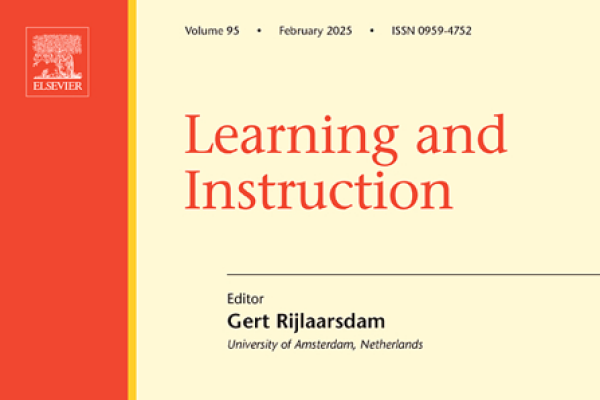
Brand, C., Hartmann, C., Loibl, K. & Rummel, N. (2024)
Background
We investigate learner characteristics and learning processes in two instructional designs with preparatory activities prior to instruction: Productive Failure (PF) and Vicarious Failure (VF). The aim is to develop a first theoretical understanding of PF and VF learners that can inform directions for the design of adaptive support.
Methods
Based on an experimental study with 110 secondary school students in mathematics, we examine the effect of students’ learner characteristics in PF (students generating own solution attempts) and VF (students studying these attempts). We assess the learning processes based on think-aloud data from 15 PF-VF-model-observer-pairs, analyzing frequencies and sequences of cognitive processes, using the HeuristicsMiner algorithm.
Results
Mathematical ability was related to PF and VF students' learning, prior knowledge and mathematical self-concept to their learning processes. While both groups showed large overlaps in the frequencies and sequences of learning processes, VF students displayed a more analytical and PF students a more solution-oriented approach to the task. Metacognitive planning and evaluation behavior was relevant for VF students’ learning, depending on prior knowledge and ability. For PF students, it depended on mathematical self-concept.
Conclusions
PF and VF students’ learning as well as frequencies and sequences of their learning processes relates to cognitive and affective learner characteristics. Metacognitive planning and evaluation behavior may require adaptive guidance specifically for learners with low mathematical self-concept in PF or prior knowledge and ability in VF.
Brand, C., Hartmann, C., Loibl, K. & Rummel, N. (2024)
Background
We investigate learner characteristics and learning processes in two instructional designs with preparatory activities prior to instruction: Productive Failure (PF) and Vicarious Failure (VF). The aim is to develop a first theoretical understanding of PF and VF learners that can inform directions for the design of adaptive support.
Methods
Based on an experimental study with 110 secondary school students in mathematics, we examine the effect of students’ learner characteristics in PF (students generating own solution attempts) and VF (students studying these attempts). We assess the learning processes based on think-aloud data from 15 PF-VF-model-observer-pairs, analyzing frequencies and sequences of cognitive processes, using the HeuristicsMiner algorithm.
Results
Mathematical ability was related to PF and VF students' learning, prior knowledge and mathematical self-concept to their learning processes. While both groups showed large overlaps in the frequencies and sequences of learning processes, VF students displayed a more analytical and PF students a more solution-oriented approach to the task. Metacognitive planning and evaluation behavior was relevant for VF students’ learning, depending on prior knowledge and ability. For PF students, it depended on mathematical self-concept.
Conclusions
PF and VF students’ learning as well as frequencies and sequences of their learning processes relates to cognitive and affective learner characteristics. Metacognitive planning and evaluation behavior may require adaptive guidance specifically for learners with low mathematical self-concept in PF or prior knowledge and ability in VF.